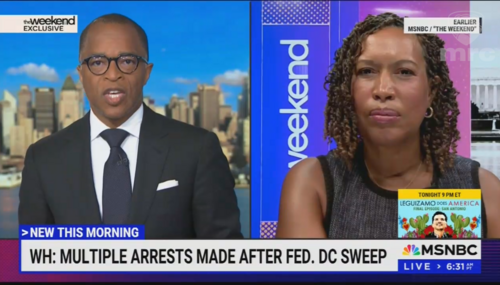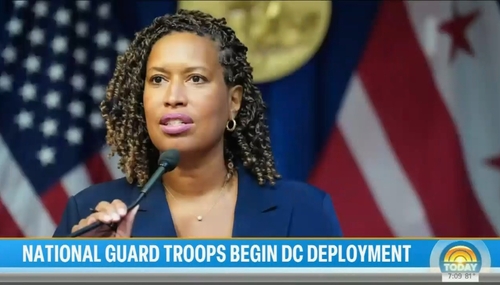On Monday, CBS This Morning aired an exclusive interview with conservative billionaire Charles Koch and reporter Anthony Mason repeatedly played up how his money has “bought him influence, it has also bought him disdain. You’ve effectively made yourself a target.”
During the 7:00 a.m. hour, Mason previewed portions of his interview in which he repeatedly questioned Koch’s decision to donate millions of dollars to conservative candidates and wondered “[d]o you think it's good for the political system that so much what’s called dark money is flowing into the process now?”
While Koch defended his political involvement, Mason continued to hit the conservative from the left over his political contributions:
Do you think it's healthy for the system that so much money is coming out of a relatively small group of people?...Some people would look at you and say you're a special interest...There are people out there who think what you're trying to do is essentially buy power.
When the extended interview aired during the 8:00 a.m. hour, Mason used much harsher rhetoric to describe Koch’s political activities:
The Koch brothers are two of the biggest and most controversial names in American industry and politics. They’re worth $43 billion each. Charles Koch and his brother David are tied as the 6th wealthiest people in the world but as he told us in a rare TV interview, if his money has bought him influence, it has also bought him disdain.
After Koch described how his business philosophy has heavily influenced his political ideology, Mason noted that “[i]n the '70s, he co-founded the libertarian think tank the Cato Institute to promote his free market philosophy which advocates a radically reduced government with limited regulation and no subsidies.”
Mason went on to detail how much money Koch plans to spend helping to get Republican candidates elected in 2016 before he declared “[o]n the left, though, the Koch's political spending has made them a symbol of corporate villainy” but the CBS reporter did give Koch ample time to promote his free market and limited government beliefs.
This was not the first time that CBS criticized the Koch brothers for their “controversial” political activity. In 2014, CBS This Morning touted Democratic efforts to make the conservative businessmen “public enemy number one.” At the time, co-host Norah O’Donnell proclaimed “[b]attling the Koch brothers, Democrats are fighting back against the family that spent more than $150 million trying to shake up Congress.”
See relevant transcript below.
CBS This Morning
October 12, 2015
ANTHONY MASON: The Koch brothers are among the nation's best known politically active families. The billionaire's network of political action committees and advocacy groups will spend $300 million on campaign 2016. We spoke with Charles Koch in a rare TV interview ahead of the release of his book “Good Profit.” He talked about the controversy that comes with money and influence. Do you think it's good for the political system that so much what’s called dark money is flowing into the process now?
CHARLES KOCH: What I give isn’t dark. What I give politically, that's all reported. It's either to PACS or to the candidates. And what I give to my foundations is all public information. But a lot of our donors don't want to take the kind of abuse that I do. They don't want these attacks. They don't want the death threats. So they aren't going to participate if they have to have their names associated with it.
MASON: Do you think it's healthy for the system that so much money is coming out of a relatively small group of people?
KOCH: Listen, if I didn't think it was healthy or fair, I wouldn't do it. Because what we are after is to fight against special interests.
MASON: Some people would look at you and say you're a special interest.
KOCH: Yeah. But my interest is just as it's been in business, is what will help people improve their lives and to get rid of these special interests, that's the whole thing that drives me.
MASON: There are people out there who think what you're trying to do is essentially buy power.
KOCH: What I want is a system where there isn't as much centralized power, where it's disburse to the people and that’s everything I advocate points in that direction.
MASON: We have much more from our conversation with Charles Koch in our next hour. How the man who often puts money behind Republicans, actually finds himself agreeing with President Obama on one issue, that’s ahead.
O’DONNELL: But he is in disagreement with President Obama and Democrats on a number of issues.
MASON: On most issues. In fact, he worked very hard to try to beat President Obama in the last election. What really drives him, he says, is he wants an economy that doesn't have government subsidies. He thinks that corrupts business and he wants limited regulation because he thinks that drives innovation. But of course he’s a very genial man but one of the most polarizing people in American politics.
GAYLE KING: I was focusing on the genial part. I thought he was so likable when I was watching yesterday. Looking forward to what you have in the next hour, Anthony.
--
ANTHONY MASON: The Koch brothers are two of the biggest and most controversial names in American industry and politics. They’re worth $43 billion each. Charles Koch and his brother David are tied as the 6th wealthiest people in the world but as he told us in a rare TV interview, if his money has bought him influence, it has also bought him disdain. You’ve effectively made yourself a target.
CHARLES KOCH: Yeah, I get a lot of death threats. I'm now on Al Qaeda’s hit list too. It's pretty scary.
MASON: That hasn’t stopped you.
KOCH: No. I decided long ago I'd rather die for something than live for nothing.
MASON: Today, Charles Koch lives in this Wichita home with his wife of 42 years Liz. He is the CEO of the second largest private industry in the country, Koch Industries, which makes everything from Stainmaster carpets to fertilizer, and refines up to 600,000 barrels of oil every day. What was the vision that you had for this company?
KOCH: The way to succeed long-term is not to think how do I maximize profits, but how do I -- or how do we maximize the value we create for others?
MASON: That vision, which Koch lays out in his new book “Good Profit," drives him both professionally and politically. In the '70s, he co-founded the libertarian think tank the Cato Institute to promote his free market philosophy which advocates a radically reduced government with limited regulation and no subsidies. Do you distrust government?
KOCH: No. The government is a social agency of coercion. Now that sounds horrible and bad but we need coercion. Beyond that government should only be doing those things where cohesion works better than voluntary cooperation and competition.
MASON: That is a tough judgment call.
KOCH: Well, that’s it. But the burden of proof needs to be on the government.
MASON: To advance their agenda, he and his brother David Koch have helped fund a complex network of conservative political action committees and advocacy groups that helped give birth to the Tea Party movement. The Kochs and their donor network will spend $300 million dollars during this election cycle, mostly in support of Republican candidates.
DONALD TRUMP: First of all, I want to build a wall.
MASON: Koch says he dislikes the tone of the presidential debates and disagrees with many of the candidates on immigration.
KOCH: We need to reform our immigration policy, letting everyone in this country who is going to make the country better, and let in no one who is going to make it worse.
BARACK OBAMA: You’ve got the NAACP and the Koch brothers.
MASON: And in a surprising alliance, the Koch's, who spent heavily to try to defeat President Obama, have now joined the White House in calling for criminal justice reform to reduce prison sentences for nonviolent offenders.
KOCH: Where some poor kid in the inner city smokes a joint, goes to prison, ruins his life. Where we have a president who is more privileged who smoked a joint, becomes president, we have a candidate who admits smoking a joint and he is running for president. Now, where is the justice in that?
MASON: On the left, though, the Koch's political spending has made them a symbol of corporate villainy.
UNKNOWN PERSON: If the Kochs and Cassidy wins, Louisiana loses.
MASON: But Charles Koch remains committed to his original intent.
KOCH: Well, my goal was to get more and more people to understand what makes their lives better, what’s a fair, what is a just society.
MASON: Has that proved more difficult than you thought?
KOCH: Are you kidding? You know, it's hard to save the world when the world doesn't want to be saved.
MASON: Koch told me he is not, for the moment, backing any specific presidential candidate. But the candidates are still going out of their way to attend seminars and conferences backed by the Koch brothers because they want those contributions.




